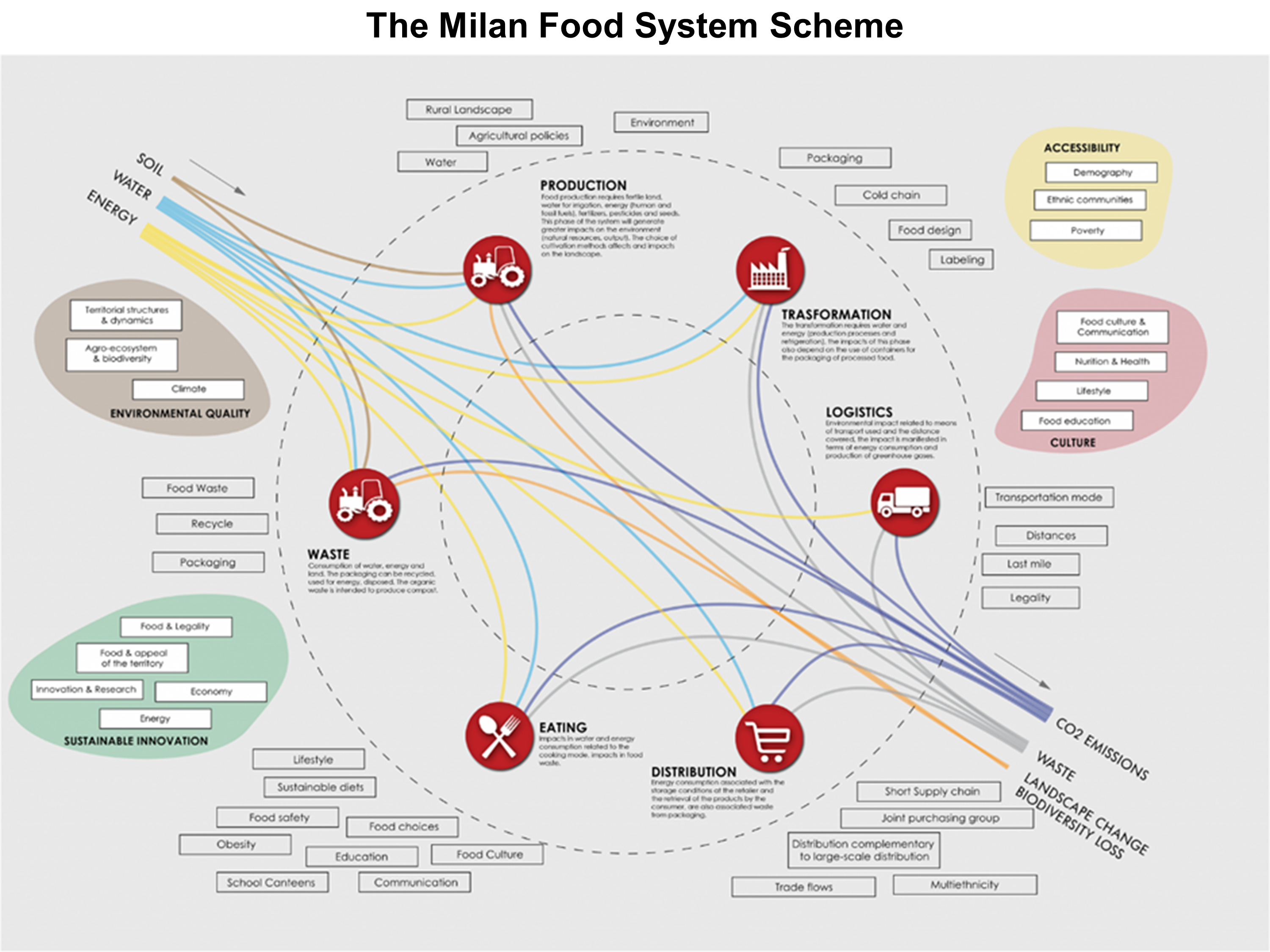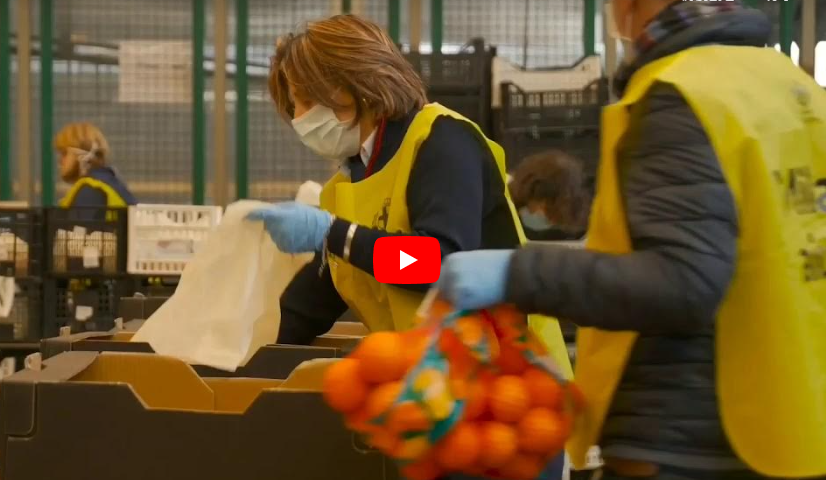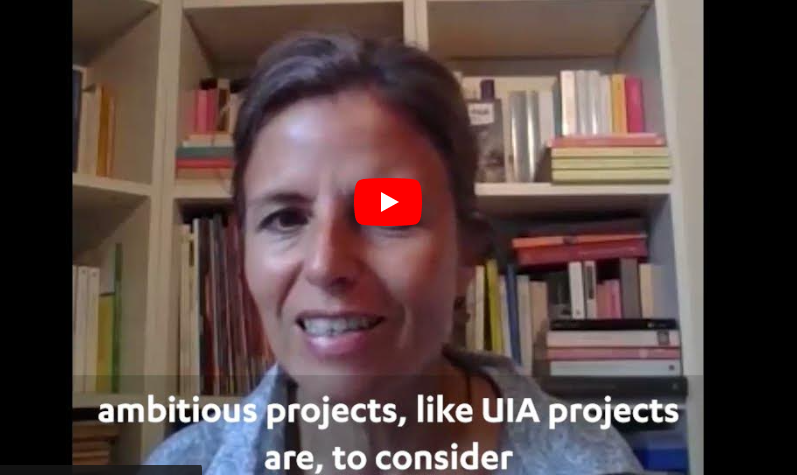Home » Session 5: Milan’s Food System Policy
Sustainable Urban Food Systems and a Collaborative Initiative in Hong Kong
Session 5: Milan’s Food System Policy
Milan, the second-largest city in Italy with a population of 1.3 million, is a pioneer in pursuing sustainable urban food systems. It developed the Milan Food Policy in 2015 as a five-year programme to make its urban food system more sustainable and inclusive and launched the Milan Urban Food Policy Pact in parallel. Based on an action-research on its food system, which identified 10 main issues (including governance, education, waste, access, wellness, environment, ecosystem, production, finance, and trade) as well as the subsequent large-scale public consultation, the Milan Food Policy confirms five priority area for actions (i.e. ensuring access to healthy food and water, promoting the sustainability of the food system, food education, fighting against food waste, and supporting scientific agro-food research) and sets guidelines and actions as well as implementation tools accordingly.
The Milan Food Policy is a major strategy for circular economy in Milan and it provides a systematical overview of Milan’s food cycle components as well as the contexts and outcomes. It takes a holistic and integrated approach to engage all relevant actors in its implementation.

Priority 1: Ensuring ACCESS to Healthy Food and Water (Echoing MUFPP recommended actions #10, #13, #14, #17, #18, #23, #27, #30 mentioned in session 3)
In Milan, resident population aged 65 or above constitutes around one-fifth of its total population and around 17% of the people in Milan are in relative poverty. These are some of the vulnerable groups on food access. The Milan Food Policy recognises the basic human rights of access to drinking water and food. It seeks to increase the access to sustainably-produced healthy local food for the needy population by, for example, issuing social cards and vouchers, opening school canteens to the elderlies in the neighbourhood, and promoting urban agriculture as well as the establishment of community canteens and soup kitchens. Here is a video introducing Milan’s food aid system during Covid-19.

Priority 2: Promoting the SUSTAINABILITY of the Food System (Echoing MUFPP recommended actions #1, #4, #15, #20, #23, #25, #28, #30, #32)
Being well aware of the importance of rural-urban linkages to the resilience of the city and its metropolitan context, the Municipality of Milan has entered into a Framework Agreement for Territorial Development “Milan Rural Metropolis” with the Metropolitan authority, the Regional authority, four Agricultural Districts and two river basin authorities, forming a public-private partnership. As part of the agreement, the Milan Food Policy promotes multilevel governance, local public procurement and innovative peri-urban agriculture. For instance, the Food Policy connected Milan’s school canteens public procurement with the supply of produce from the agricultural districts within the Metropolitan City of Milan. In 2018, 17,000,00 school meals were served using local ingredients in the same year (Ecocity Builders, 2021).
Priority 3: Food EDUCATION (Echoing MUFPP Actions #2, #7, #15, #19, #35, #36)
Milan actively carries out food education to raise citizens’ awareness towards healthy and sustainable food that is produced and distributed with respect for human rights and the environment. Actions include strengthening food education at schools, organising campaigns and festivals, setting up education farms and vegetable gardens, etc. For instance, the “I Don’t Waste” initiative from the public company Milano Ristorazione (Milan Catering) provides kids with a washable and recyclable snack-saver bag to take away non-perishable leftover of their meal. There are 120 educational vegetable gardens in Milan run by schools and associations that work with schools on educational projects (City Council of Milan, 2015).
Priority 4: Fighting Against FOOD WASTE (Echoing MUFPP Actions #28, #33, #34, #35, #36, #37)
Milan puts great emphasis on reducing food loss and food waste throughout all stages of the food system, developing a circular economy that transforms waste into goods of greater value. Waste tax reduction was introduced for business which donate food to charities. The Municipality of Milan, partnering with an association of private stakeholders, established Local Food Waste Hubs to recover surplus food and redistribute to local population in need. Municipal organic waste management is also carried out under which surplus food is collected and processed into biogas to be injected into the local gas network or compost to fertilise farmland (Ellen MacArthur Foundation, 2019).
Priority 5: Supporting Scientific Agro-food RESEARCH (Echoing MUFPP Actions #19, #24, #28)
Milan strives to foster scientific research on the local food system in order to improve processes and develop innovative technologies. For example, the City of Milan’s OpenAgri project, which is part of the European Union’s Urban Innovative Actions initiative, collaborates with several Milanese universities and research centres to conduct studies and support enterprise creation with an aim to develop new skills and job opportunities in urban and peri-urban farming and along the agri-food supply chain (Comune di Milano et al, 2018).

A Multi-level Cross-sectorial Governance Model for Implementation (Echoing MUFPP Actions #1, #2, #3, #5)
An integrated and efficient governance model is always the greatest challenge when implementing urban food policy. To overcome silos mentality of the different Municipal departments and agencies, Milan has developed a multilevel and cross-sectoral governance model to engage the relevant local stakeholders (horizontal integration), as well as establish connections with Metropolitan, Regional and European authorities (vertical integration). The Vice Mayor, designated for Milan Food Policy by the Mayor, coordinates and supervises the newly established Food Policy Office. The Office is responsible to integrate all departments, agencies, urban and multilevel actors engaged in the food system and the Milan Urban Food Policy Pact (MUFPP). It also communicates and shares methodology and best practices within the Milan networks such as MUFPP, C40 (Milan Food Policy Office, 2018)
With all its efforts, Milan is recognised as having the most diversified actions in its food policy, encompassing all 6 MUFPP pillars – governance, nutrition, social, production, distribution and waste, performing even better than metropolises such as Vancouver, London, New York (Filippini et al, 2019). In addition, its Urban Food Policy was recognised as the most innovative at the Guangzhou International Award 2018 (MUFPP Secretariat, 2018).
Read more:
City Council of Milan. (2015). Milan 2015-2020 Food Policy guidelines. Milan: City Council of Milan. Retrieved from http://mediagallery.comune.milano.it/cdm/objects/changeme:71638/datastreams/dataStream3943587268670669/content?1482924699146
Comune di Milano, Fondazione Cariplo & Està. (2018). The Food System in Milan - Five priorities for a sustainable development. Retrieved from https://www.foodpolicymilano.org/wp-content/uploads/2015/04/Milan_food_system_EN1.pdf
Ecocity Builders. (2021). The Milan Food Policy – Actions and Innovations for Making Urban Food Systems More Sustainable and Inclusive. Retrieved from https://ecocitybuilders.org/sustainable-development-training-milan/
Ellen MacArthur Foundation. (2019). The Milan Food Policy – Collaborating to change local food systems. Retrieved from https://www.ellenmacarthurfoundation.org/case-studies/the-milan-food-policy
Filippini, R., Mazzocchi, C & Corsi, S. (2019). The contribution of Urban Food Policies toward food security in developing and developed countries: A network analysis approach, Sustainable Cities and Society, 47(101506). Retrieved from https://doi.org/10.1016/j.scs.2019.101506
Milan Food Policy Office. (2018). Policy Brief of Milan Food Policy – Working on a new approach in local food system management going beyond the silos mentality 2014-2018. Milan: Creative Commons by City of Milan. Retrieved from http://mediagallery.comune.milano.it/cdm/objects/changeme:94565/datastreams/dataStream1112173130827997/content?1518607131605
Milan Urban Food Policy Pact Secretariat. (2018). Policy won Guangzhou Award 2018. Retrieved from https://www.milanurbanfoodpolicypact.org/food-policy-of-milan-is-the-winner-of-the-guangzhou-award-2018/#
Continue to “Session 6: Initiating a Collaborative and Networked Food System in Hong Kong”
© 2019 Centre for Civil Society and Governance at The University of Hong Kong
Except where otherwise noted, contents of this e-case is licensed under a Creative Commons Attribution-NonCommercial-ShareAlike 4.0 License.
![]()


